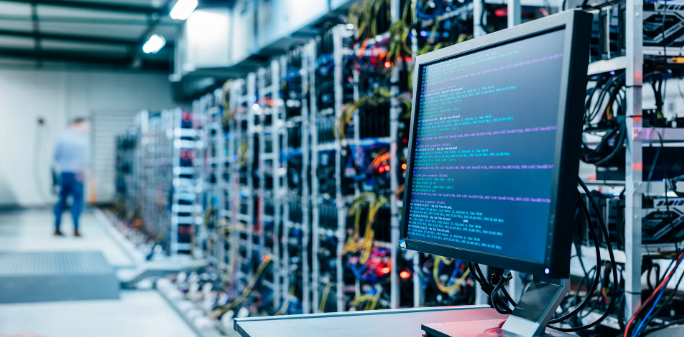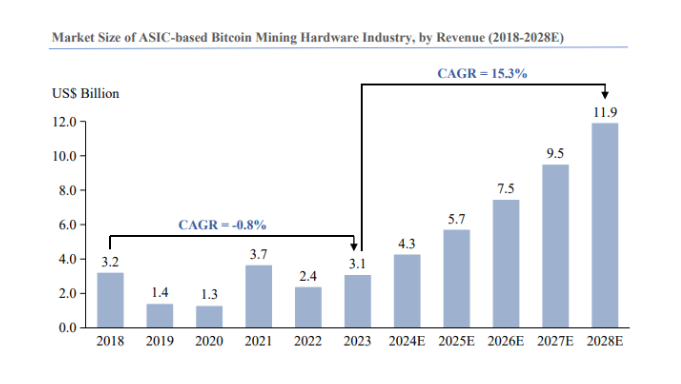If you thought the global race to mine imaginary internet coins was wild, buckle up: three Chinese behemoths—Bitmain, Canaan, and MicroBT—have set down their oversized briefcases (and possibly some slightly confused engineers) on American soil. Why? To dodge those import tariffs that appeared out of nowhere, like an overachieving magician pulling 25% fees from a hat.
Between them, these companies run more than 90% of the planet’s Bitcoin miners. That’s right, the next time your computer starts metaphorically sweating over a blockchain, it’s probably thanks to one of these firms—unless your laptop is, in fact, a toaster. In that case, apologies.
A Pulse-Racing Dash to Outwit Tariffs 🏃♂️💸
Our story begins, as all great modern tales do, in the wake of a Trump tweetstorm. Suddenly, the US hit Chinese goods with tariffs, and Bitmain quietly opened US production in December—barely enough time for them to find the best sandwich shop in town. Canaan wasn’t far behind, flipping the “on” switch just in time for April Fools’ Day (presumably not a coincidence). Meanwhile, MicroBT claims to be “implementing a localization strategy,” which, in tech-speak, means “installing coffee machines in an office with a glorious view of New Jersey.”
All three are desperate to avoid giving the US government 25% of every ASIC miner they sell. These ASIC machines are, incidentally, the reason your neighbor Larry insists he’s running a “home-based data center” that sounds suspiciously like a jet engine at 3AM.

Monopolies: Not Just For Board Games 🎲
According to Frost & Sullivan’s 2024 white paper (which, let’s be honest, sounds like something you’d clean your glasses with), these three giants clutch 95% of the global ASIC market. That’s not just a slice of the pie; it’s the pie, the oven, and your grandma’s secret recipe. Who says competition is dead? Oh right, economists.
The analysts predict a 15% CAGR and $12 billion in mining gear sales by 2028, so you can see why these mega-firms aren’t pulling their power cords out just yet.

Security Concerns And ‘Digital Dependency Trap’ — Because Who Doesn’t Love A Bit of Paranoia? 😱🔌
Meanwhile, almost 40% of all the world’s Bitcoin mining happens in the US, but the miners still use machines built by people who probably also invented “fun-sized” candy bars (i.e., the source of global trust issues). Pundits warn of a “digital dependency trap.” Which sounds a bit like a trendy escape room, but with more firmware updates and existential dread.
Guang Yang, CTO of Conflux Network, reminds us the trade spat isn’t just about money; it’s about “politically acceptable” hardware—which we assume comes in either Freedom Blue or Democracy Grey. Some folks even worry that these new machines might come with surprises hiding inside, like firmware backdoors or, possibly, a miniature terracotta warrior collecting dust.

the Chinese firms have more experience, deeper supply chains, and presumably, way better canteens. US miners need rigs now, not fond hopes and PowerPoint slides full of “synergy.”

Miners are hoping for quicker delivery times and fewer tariff-induced heart palpitations. But the real question remains: is this the dawn of a new American chip renaissance… or just an elaborate exercise in rebranding, like slapping a cowboy hat on a panda and calling it “Western Innovation”?
Skeptics point to past attempts—solar panels, telecom gear—where “moving assembly” mostly led to bigger carbon footprints and a lot of bureaucratic paperwork, but not much actual technological independence. Maybe, just maybe, the only thing growing faster than the Bitcoin market is the world’s collective eyebrow, raised in cynical curiosity. 🤨
Read More
- Masters Toronto 2025: Everything You Need to Know
- We Loved Both of These Classic Sci-Fi Films (But They’re Pretty Much the Same Movie)
- ‘The budget card to beat right now’ — Radeon RX 9060 XT reviews are in, and it looks like a win for AMD
- Forza Horizon 5 Update Available Now, Includes Several PS5-Specific Fixes
- Street Fighter 6 Game-Key Card on Switch 2 is Considered to be a Digital Copy by Capcom
- Valorant Champions 2025: Paris Set to Host Esports’ Premier Event Across Two Iconic Venues
- Gold Rate Forecast
- The Lowdown on Labubu: What to Know About the Viral Toy
- Karate Kid: Legends Hits Important Global Box Office Milestone, Showing Promise Despite 59% RT Score
- Mario Kart World Sold More Than 780,000 Physical Copies in Japan in First Three Days
2025-06-19 23:18